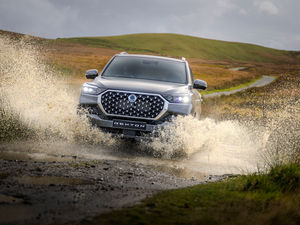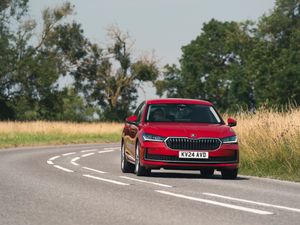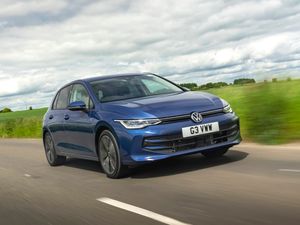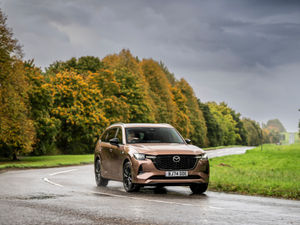UK Drive: Does the MPV still have a place in the future with the Peugeot 5008?
The Peugeot 5008 has gone into its third-generation. Cameron Richards takes a look at the outgoing car to see if there is still a place for the MPV.
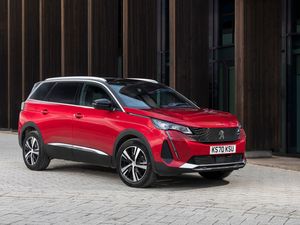
What is it?

The acronym, MPV, is rarely used in the automotive industry these days and that’s because of the rise and domination of crossovers and SUVs. Indeed, Multi-Purpose Vehicles have fallen out of favour with buyers more interested in sitting a little higher up.
The Peugeot 5008 is still a no-nonsense seven-seat family wagon that promises to give the comfort and practicality that an ever-growing family needs. With a new model arriving on the scene, we take a drive in the outgoing car to see if the next generation has a lot to live up to. Let’s find out.
What’s under the bonnet?

We are driving the hybrid model which comes fitted with a 1.2-litre turbocharged petrol engine mated to an electric motor. It produces a total power output of 134bhp and 230Nm of torque, while acceleration stands at 0-60mph in 10.1 seconds and it reaches a top speed of 124mph.
Other engines in the range consist of the standard 1.2-litre turbocharged petrol engine without electrified assistance. It produces a total power output of 129bhp and 170Nm of torque. Acceleration from 0-60mph is the same as in the former, however its top speed is slightly less at 117mph.
You can also get an efficient 1.5-litre turbo diesel variant that is badged ‘HDi’. Power is the same as in the standard 1.2-litre turbo petrol at 129bhp, but its torque levels increase to 221Nm. Performance is slightly less as well with a 0-60mph of 11.6 seconds, but expect fuel economy to be around 54mpg combined. All 5008s come as standard with an automatic gearbox.
What’s it like to drive?

Immediately when you get behind the wheel of this family wagon, there is no doubt that Peugeot wanted to focus on comfort as well as driver engagement with the 5008. The seats are like armchairs and do a great job of supporting you while you’re on the move. Furthermore, our test car had a massage function for the driver’s seat, to aid comfort even more.
The driving experience itself is surprisingly good for this category of car with it feeling composed around the bends and the steering has a nice weight to it. The engine has a good, sporty tone – despite it only being a 1.2-litre three-cylinder, too. Refinement is also good with little intrusion of any road and wind noise entering the cabin. Meanwhile, visibility is excellent thanks to the large glass areas making it a doddle to manoeuvre this very large MPV.
How does it look?

At the front you get the slim long LED daytime running lights and headlights that merge into the grille. At the back, you get the tiger claw effect rear taillights and fake exhaust tailpipe design that feature on the lower part of the back bumper, but overall the design is simple and inoffensive.
Our test car came with a two-tone roof and darkened alloy wheel designs which gave a classy yet sporty look, too.
What’s it like inside?

Ever since the firm’s 208 supermini was released back in 2012, Peugeot interiors have always had a sporty essence about them. Even though there is nothing performance-inspired with the 5008, you still get a small stubby steering wheel and the firm’s i-cockpit that includes a digital readout of your speed and various driving information.
The dashboard itself is angled towards the driver and there are shortcut buttons that look like toggle switches from an aircraft. The materials used throughout feel high quality and there is a nice texture cloth effect on the front door cards and above the glove compartment.
In terms of storage, with the acceptance of the pathetic glove box, you still get an incredibly deep centre storage bin under the split opening armrest, as well as two cup holders and decent sized door bins.
However, step in the back and things step up a gear. Passengers are greeted to picnic tables, storage nets on the seatbacks and large door bins located in the rear doors – while the nearside rear passenger also gets a secret underfloor storage compartment in the footwell.
Space itself is excellent with loads of head, leg, knee and shoulder room, but the third row is best suited to smaller children as the floor is fairly high and headroom is a bit of squeeze – but, at least they fold up and down relatively easily with just two levers.
Capacious is an understatement to describe the 5008’s boot capacity. As it stands with all the seats folded down at 2,042 litres – remove all the seats and the volume increases further to 2,150 litres. With the third row flattened, the capacity is still respectively at 952 litres or 166 litres with all rows in place.
What’s the spec like?

The 5008 trim levels are easy enough to comprehend as there is just Active, Allure, GT-Line Premium and GT.
All models come well equipped with even the entry-level car featuring an eight-inch infotainment screen, automatic climate control and rear parking sensors.
Our test car is the flagship GT model and it comes in at around £37,000. For that, you get leather upholstery, heated front seats with a driver’s massage function and electric adjustment, keyless entry and Apple CarPlay and Android Auto.
Verdict
It’s a shame that the production of the second-generation 5008 is coming to an end. For a vehicle competing in a rapidly declining market, Peugeot has shown that the MPV can still be engaging without compromising on practicality and looks. The third-generation car has big boots to fill to make it as good as this outgoing model.


